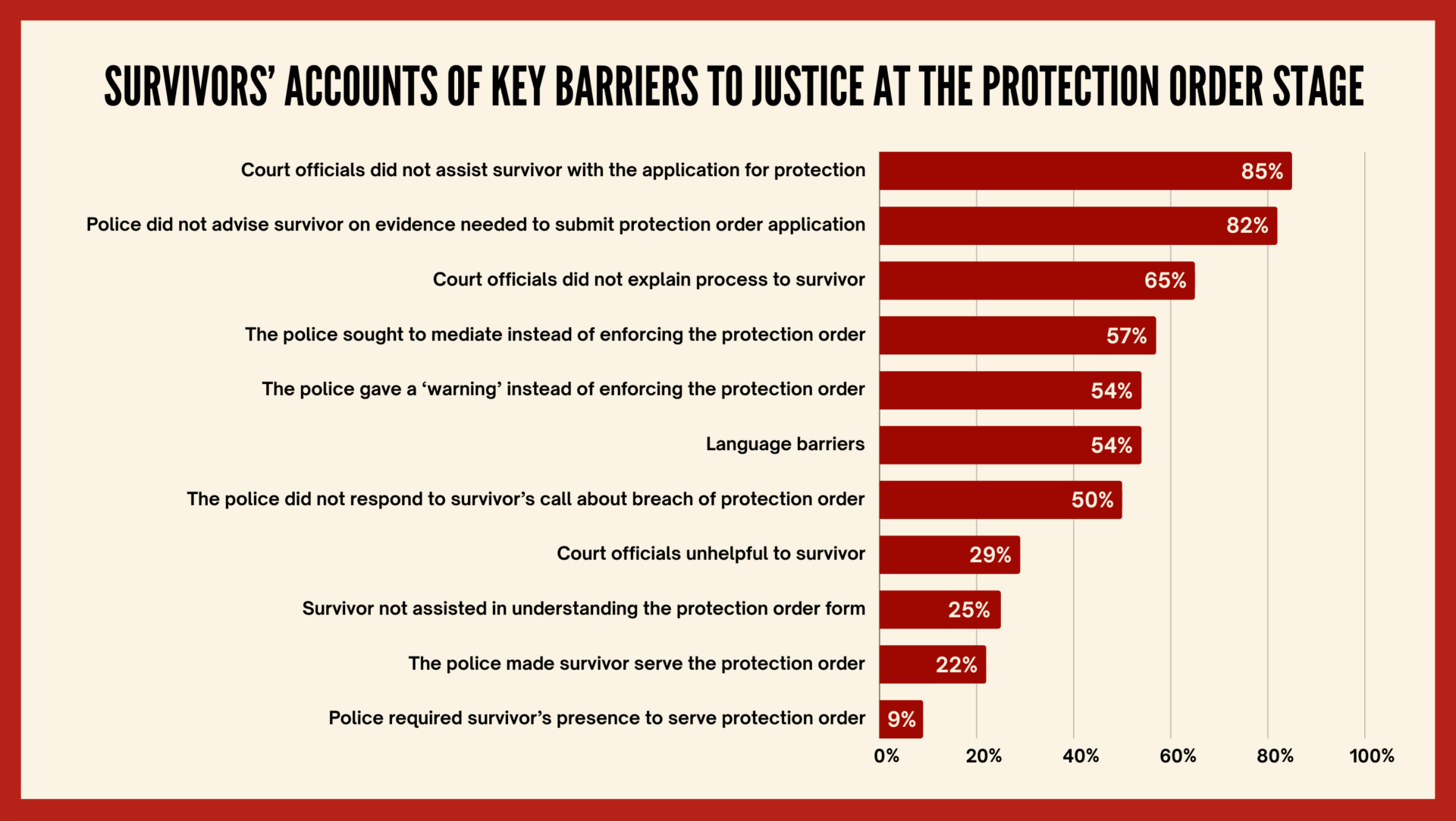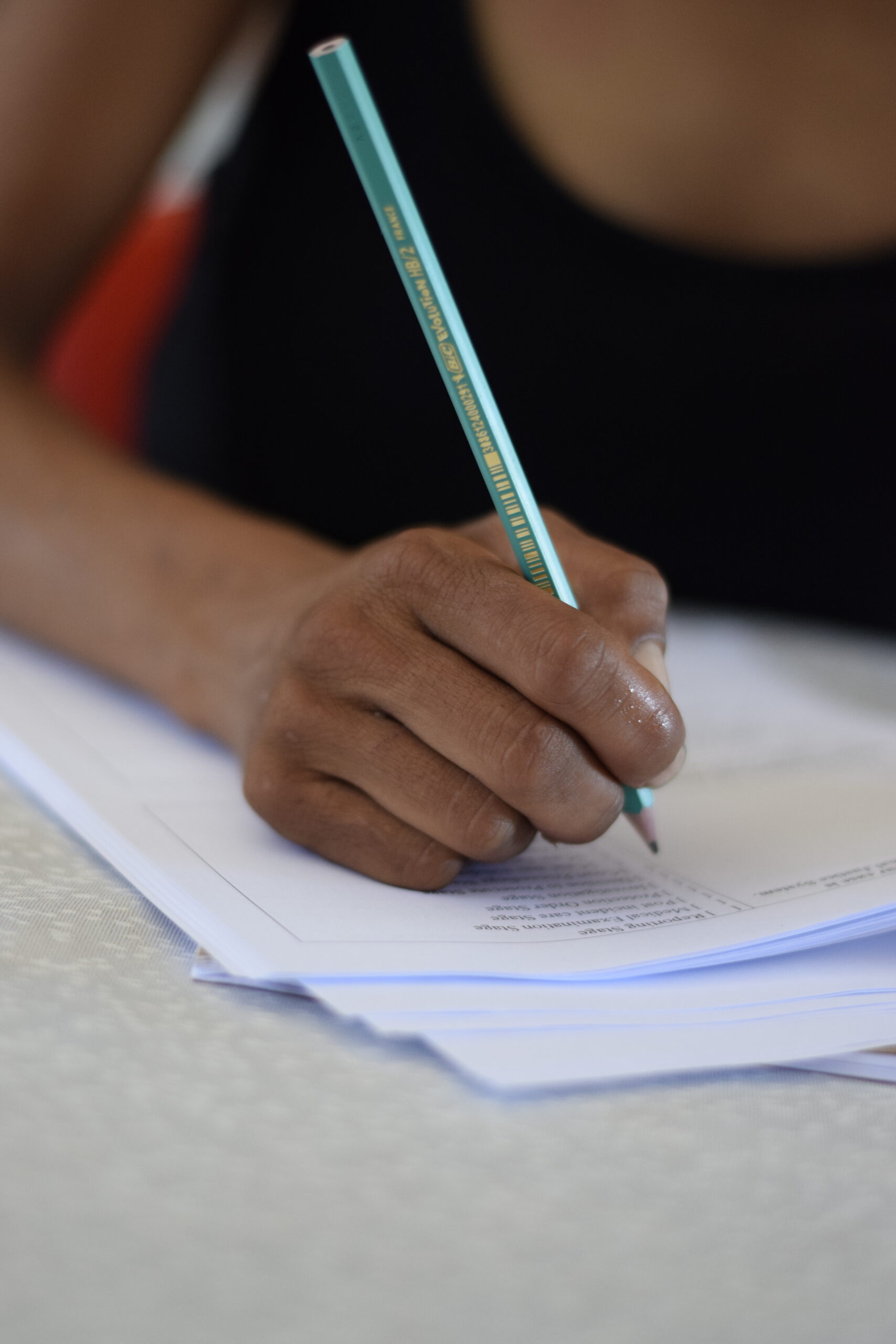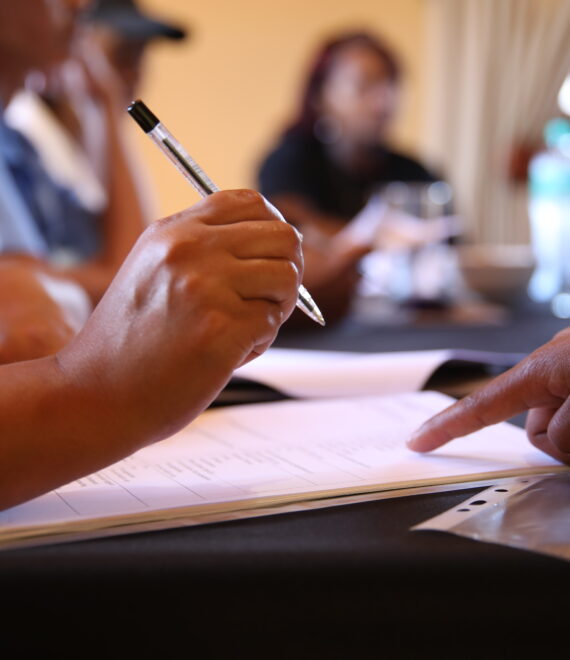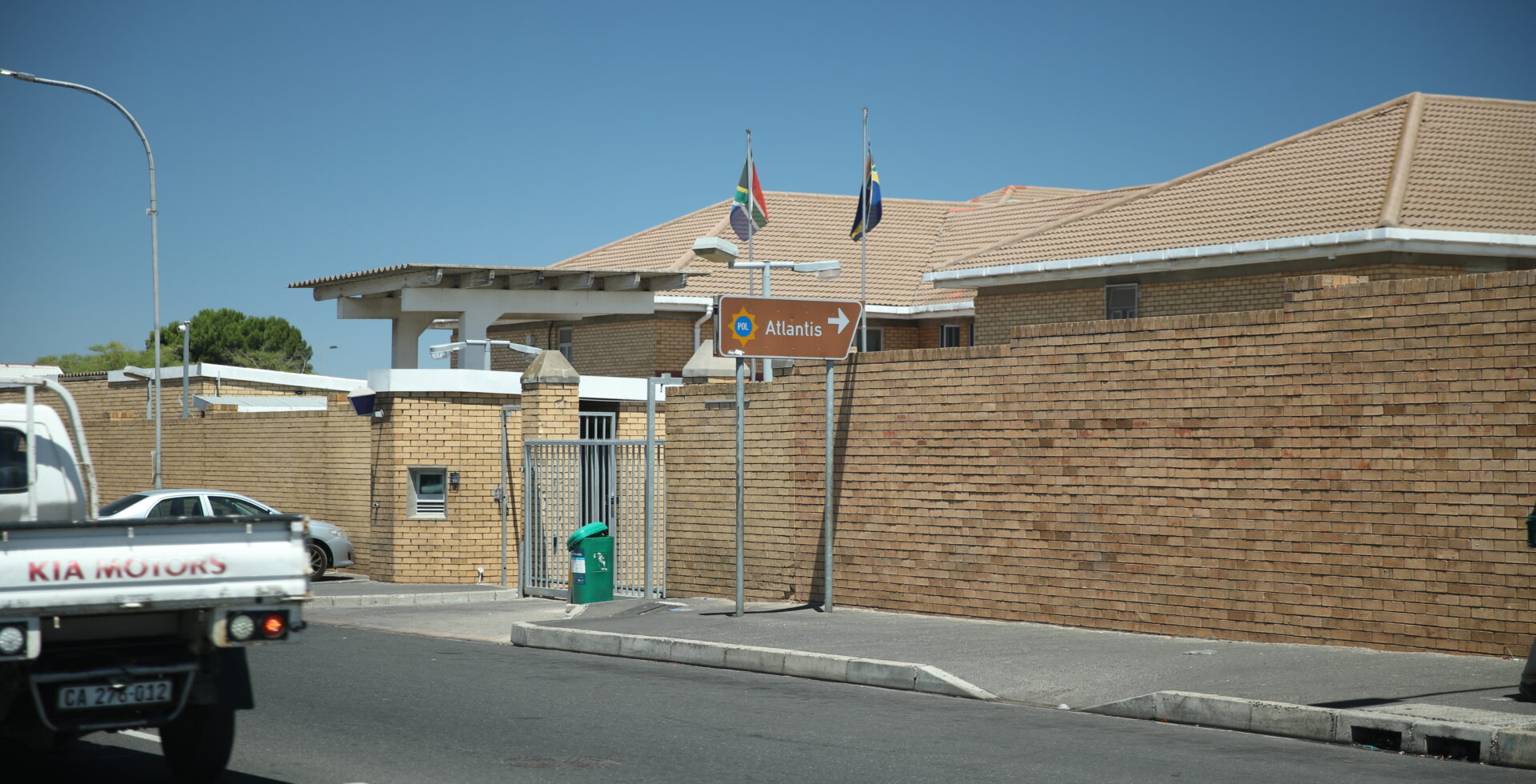
That case went cold; nothing came of the matter. Things carried on like this year after year; I however attempted to get help from the police again. I went to get a [protection order] and they told me to leave. I moved in with my aunt, and then he would follow me there and assault me.
Courts in South Africa can issue protection orders – also known as restraining orders or interdicts – to safeguard survivors of gender-based violence from their abusers.
UN Women considers protection orders as among the most effective legal remedies for gender-based violence survivors. Perpetrators who violate a protection order should be arrested, as protection orders are legally enforceable throughout the country. But the majority – 88% – of the 77 survivors surveyed who reached the protection order stage reported facing numerous barriers.
The most common issue was the inability to access necessary information and support. Survivors reported that court officials provided no assistance with the protection order application, which was predominantly in English and thus unreadable to over half of the respondents, despite South Africa having 11 constitutionally protected languages. When the time came for the court hearing, many survivors said they were not prepared, as they could not afford a lawyer, and no one had explained the process.
Even when protection orders were put in place, additional risks loomed. Some survivors reported being forced to serve their own protection orders on their abusers, and perpetrators who violated the order faced no consequences. Making matters worse, perpetrators sometimes retaliated by applying for orders of their own, which forced survivors to obtain legal services at their own expense. For many, this proved an insurmountable barrier.
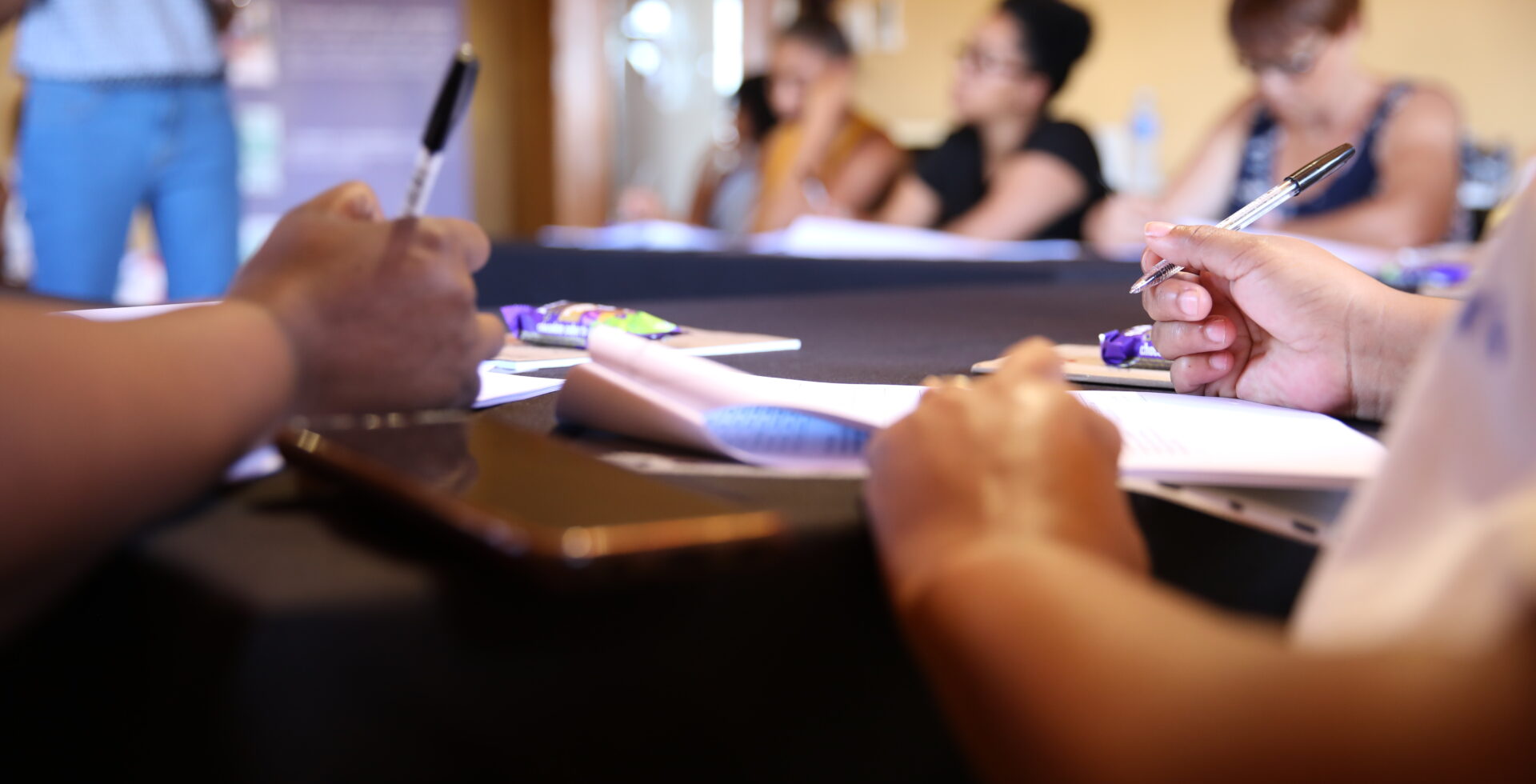
So [we] got to court [for the protection order], there wasn't a lot of questions asked. They just asked my husband a few questions, and then they said that, fine, that I must come back the next day, and then I must come fetch the protection order, and I must serve it myself to him… I had to go to his house and give it to him myself.
